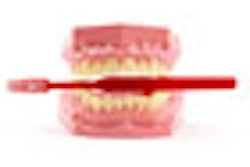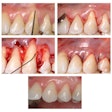Dear Hygiene Insider,
With the changing healthcare landscape in the U.S., dental hygienists are facing both new challenges and new opportunities, according to Pamela Quinones, RDH, president of the American Dental Hygienists' Association (ADHA).
In an interview with DrBicuspid.com for our Leaders in Dentistry series, Quinones discusses the role midlevel providers and dental therapists may play in increasing access to care and whether there are too many dental hygienists and not enough jobs. According to Quinones, the access-to-care crisis has created a demand for the current model of dental hygiene to evolve -- a challenge that holds much opportunity for current and future hygienists alike.
Read more in this latest Hygiene Insider Exclusive.
In other Hygiene Community news, will Washington become the next U.S. state to adopt the midlevel provider (MLP) model? State lawmakers are deciding whether to approve proposed legislation that would allow MLPs to do irreversible procedures with offsite supervision by a dentist.
In response to the debate, Lynn Stedman, RDH, president of the Washington State Dental Hygienists' Association, wrote in a recent DrBicuspid.com column that the future of dentistry and dental hygiene must evolve to remain viable and free from government mandates. MLPs are a step in the right direction, she contends, but so is a collaboration between dental and medical professionals to address the oral-systemic health link.
In product news, can chocolate actually be good for your teeth? A New Orleans-based start-up has leveraged 30 years of research to create a toothpaste that eliminates the need for fluoride by using a naturally occurring compound found in cocoa that also strengthens tooth enamel. Click here to learn more.
On the clinical front, the American Academy of Periodontology's efforts to increase IV sedation training in postgraduate programs in the 1990s have resulted in a greater comfort level among newer doctors and increased adoption of the practice as a result. Read more.
Also, the antibiotic prescribing practices of dentists for odontogenic infections in children do not appear to be in line with the recommended professional guidelines of the American Academy of Pediatric Dentistry and the ADA, according to a survey in the Journal of the American Dental Association.
And, using ornidazole in conjunction with scaling and root planing achieves significantly better clinical results in treating moderate to advanced chronic periodontitis than periodontal treatment alone, according to a new study in the Journal of Periodontology (JOP).
Another JOP study that compared the effectiveness of written, oral standardized, and oral individualized instructions in reducing gingivitis found that the most effective of the three techniques was oral individualized instruction.
Finally, could probiotic ice cream help improve the oral health of children and adults alike? An Indian study that evaluated the effects of probiotic ice cream on bacteria associated with saliva yielded promising results, suggesting that this tasty approach to battling demineralization and caries warrants a deeper look. Click here to read more.



















